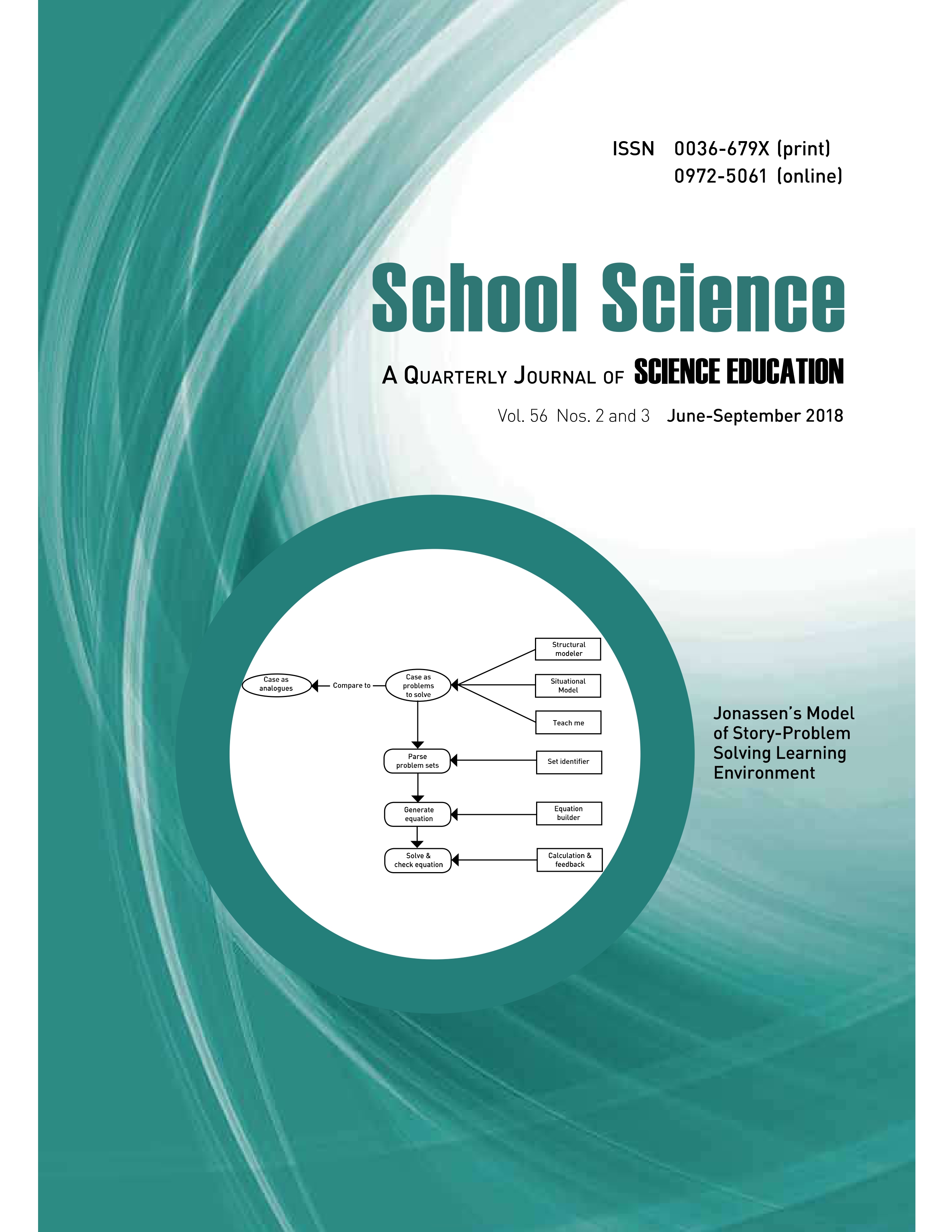Published 2018-09-30
Keywords
- Assessment,
- ICT,
- Innovation,
- Integration,
- Teaching
- Learning,
- School ...More
How to Cite
Abstract
Educational effects are greatly dependent upon the perception about teaching, the methods a teacher has and the use s/ he makes of equipment (NCERT, 2005). Recent developments in information and communication technologies (ICT) have changed the way people live, communicate and play. These developments have also affected the lives of our students, both at home and at school (NCERT, 2005). As we enter into the era of globalisation, there is universal recognition of the need and importance of integrating ICT in education for preparing the future generations, enabling them to develop competence based skills as per global standards. The current study aims to identify the status of ICT integration in the school context and also explore some of the innovative practices used by these schools for integrating ICT in their teaching, learning and assessment practices. For this, a sample of four schools (government, private-public, international and government aided, one each) of Delhi were selected using stratified random sampling technique. The study adopted a qualitative case study approach to examine the extent and nature of ICT integration for teaching, learning and assessment processes at the sample schools. An item checklist and non-participant classroom observations were conducted to understand the ICT availability and usage patterns and purposes by the teachers. The results present differences in teachers’ patterns and purposes of ICT usage among the four types of schools. Three types of ICT-integration strategies, (a) teaching only strategy; (b) teaching-learning, but not assessment strategy and; (c) the balanced strategy, also emerged from the study. Finally, the results also highlight simple yet innovative ways for integrating ICT-based technologies in school’s everyday functioning. The current paper further encourages present teachers, school administrators and prospective teachers to adopt, test and validate these practices in their own respective school contexts, hence furthering/contributing towards the national vision, as seen by MHRD (2012), for improving access, quality and efficiency in school system through ICT-enabled activities and processes.

